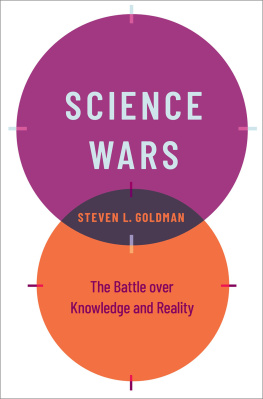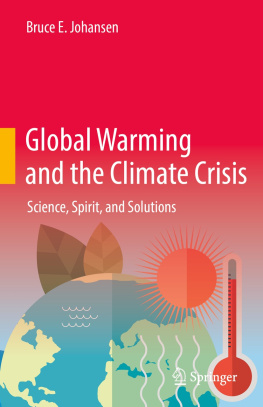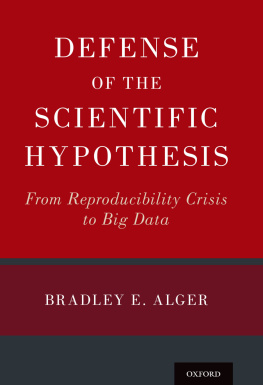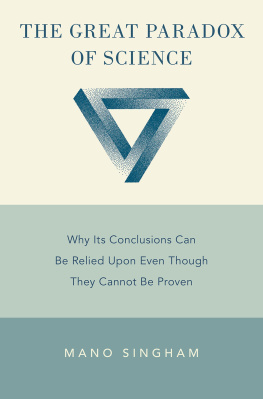Science Wars

Oxford University Press is a department of the University of Oxford. It furthers the Universitys objective of excellence in research, scholarship, and education by publishing worldwide. Oxford is a registered trade mark of Oxford University Press in the UK and certain other countries.
Published in the United States of America by Oxford University Press
198 Madison Avenue, New York, NY 10016, United States of America.
Oxford University Press 2022
All rights reserved. No part of this publication may be reproduced, stored in a retrieval system, or transmitted, in any form or by any means, without the prior permission in writing of Oxford University Press, or as expressly permitted by law, by license, or under terms agreed with the appropriate reproduction rights organization. Inquiries concerning reproduction outside the scope of the above should be sent to the Rights Department, Oxford University Press, at the address above.
You must not circulate this work in any other form and you must impose this same condition on any acquirer.
Library of Congress Control Number: 2021942717
ISBN 9780197518625
eISBN 9780197518649
DOI: 10.1093/oso/9780197518625.001.0001
Contents
This book is a much revised and expanded version of the audio/video course Science Wars: What Scientists Know and How They Know It that I created in 2006 for The Teaching Company, now called The Great Courses Company. That course, in turn, was based on the history and philosophy of science courses that I taught at Lehigh University during my thirty-nine years there as Andrew W. Mellon Distinguished Professor in the Humanities. I thank my wife Phoebe Weisbrot and my granddaughter Chagit Barash for encouraging me to write this book, which I dedicate to the memory of my late wife Risa Ebert Goldman.
Science Wars
Canhuman beings know anything, and if so, what and how? This question is really the most essentially philosophical of all questions. (Bertrand Russell)
Doesn'tall science live on this paradoxical slope to which it is doomed by the evanescence of its object in its very apprehension, and by the pitiless reversal that the dead object exerts on it? (Jean Baudrillard)
What do scientists know and how do they know it? Straightforward questions, surely, and important ones, yet over the four hundredyear history of modern science, no answers have stood up to critical scrutiny.
No theory of how science worksno philosophy of sciencehas won universal acceptance. Scientists typically describe their work as producing objective knowledge of reality, knowledge that is, if not certainly true, then converging on it. Critics argue that what scientists call knowledge is actually pragmatically justified, probabilistic, subjective interpretations of experience. This may seem an abstract intellectual issue, but it is not.
Over the past two hundred years, society has become increasingly dependent on science-related technologies and the practice of science has become deeply embedded in social, political and economic institutions. Ambiguity about the nature of scientific knowledge thus has profound implications for the role of science in society, especially in the formulation of effective science-relevant public policies. The need for such policies is of particular moment today, relating, among other issues, to pandemics, global warming, energy alternatives, environmental degradation, and commercial applications of increasingly powerful biotechnologies, nanotechnologies, robotics, and artificial intelligence software.
For their part, scientists argue that policy decisions in these areas must be determined based on scientific knowledge because it is objective, hence value neutral. If this argument is contested, however, on the grounds that scientific knowledge is not objective, that it is itself political because it is a product of value judgments by members of an elite community, then science cannot be the neutral arbiter of controversial sociopolitical action agendas. Furthermore, if scientific theories are not true in the sense of corresponding to reality, that strengthens the demands of religious fundamentalists for the inclusion in science education of what the fundamentalists believe to be true about reality.
In this book, I argue that an understanding of how scientists produce knowledge has proven elusive because there is a logical inconsistency at the heart of modern science. Modern science is based on a conflation of deduction and induction, rationalism and empiricism, realism and conventionalism. The self-proclaimed goal of modern science from its beginning has been to use experience to transcend experience and reveal the mind-independent causes of experience. This cannot be done logically, but success is routinely proclaimed based on experimental confirmations of theory-based predictions, thereby proving the reality of scientific objects. I will argue that the contradiction at the heart of modern science is the result of equivocation over how the word knowledge is to be defined. This is pivotal because the definition of knowledge affects what truth, rationality, and reality mean.
Words matter. They matter because words often carry connotations, presuppositions and value judgments that shape how we respond to them. Consciously and unconsciously, we respond very differently to knowledge than we do to belief and opinion. We use each of these words intending that they have different effects on listeners and readers. A scientific conviction typically is characterized as a matter of knowledge, while a religious conviction typically is characterized as a matter of belief and a political conviction as a matter of opinion. To claim to know something, especially to know something scientifically, is taken by just about everyone to be a fundamentally different kind of claim from stating opinions or beliefs about those same matters. Knowledge has more rhetorical force than the words belief and opinion. Why is that?
Knowledge trumps belief and opinion because knowledge carries the connotation of a correlation with truth, and through truth with reality, with the way things really are regardless of beliefs and opinions. This elevates knowledge above belief and opinion, and it elevates people who possess knowledge, or can successfully claim to possess it, above those who merely express opinions and beliefs. Allowing the word knowledge this privileged usage implicitly assumes that knowledge really is essentially different from beliefs and opinions, but is this assumption justified? We can choose to define knowledge as statements that are necessarily true while opinions and beliefs may be false. But we could also choose to define knowledge as those opinions and beliefs for whose truth convincing but not compelling reasons can be given. In the latter case, knowledge would lose some of its rhetorical force because it, too, might be false and because what seems a convincing reason to one person might not be convincing to another.
From the time of the pre-Socratic Greek philosophers in the fifth century bce to the present, the dominant definition of knowledge in Western culture makes knowledge fundamentally different from opinion and belief. On this view, there is only one truth of any matter and that is known only to the people who possess knowledge. I will call this definition of knowledge knowledge in the strong sense. A rival definition, also proposed in the pre-Socratic period, was that knowledge was a name for opinions and beliefs for whose truth more or less good reasons could be given, but never with certainty. I will call this definition of knowledge knowledge in the weak sense. Since 1600, natural philosophy, now called modern science, has promoted itself as the only source of knowledge for human beings. The historian Stephen Gaukroger began his history of the cultural context out of which modern science emerged as follows: One of the most distinctive features of the emergence of a scientific culture in modern Europe is the gradual assimilation of all cognitive values to scientific ones. Only scientists possess knowledge, only scientists possess truth, only scientific reasoning is rational, and only scientists possess an understanding of reality. This poses a profound challenge to all other responses to human experience, to art and literature, for example, no less than to religion and philosophy.









